
Tutoring reading is wonderful because you can concentrate on the needs of one child at a time. But it’s important to figure out what to focus on in each brief lesson.
I say “brief” because some young readers can only concentrate for half an hour at a time. And even an hour seems short, if the parent wants only one lesson a week. (Sadly, once-a-week tutoring arrangements are becoming increasingly common, as children are engaged in more and more activities.) Yes, tutoring time is precious, so it’s important to be clear about what your focus is for each lesson.
Having a focus, however, doesn’t mean that we teach only one skill during that session. I like to keep each lesson balanced—with at least some letter and word work, book reading, comprehension activities, and maybe some writing. A focus is simply a strategy, skill, or bit of information that echoes throughout the lesson. Echoes are especially memorable when presented in different contexts during a session, or even across several sessions.
Let’s say you’ve decided to focus on phrasing. At the beginning of the lesson, you could encourage the child to put words together while reading familiar books. Later in the lesson, you might have the youngster read from sentence strips placed in phrases. At the end of the lesson, you could introduce a new book that would encourage phrased reading with repeated language place in phrases on the page. You would encourage phrased reading at different points of the lesson, but it wouldn’t be all that you teach.
Here are some factors to consider when determining what the focus of your reading lesson should be.
-
-
- Where is the child now, and what are her next steps?
- Are there underlying concepts I need to teach?
- What will help the child progress the most?
-
Where is the child now, and what are her next steps?
What do you know about the child? Perhaps the parent has provided you with test results and recommendations. Maybe you have conducted your own assessments, or simply have your own notes from observing the student. Does the child have marked strengths and weaknesses that you need to consider?
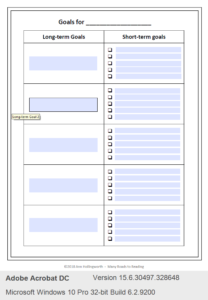 Sometimes the student has taken on unhelpful habits that are interfering with her learning. If so, it might be a priority to override or replace those habits with new skills or strategies. For beginning readers, unhelpful reading habits are often mistaken understandings of what reading is about.
Sometimes the student has taken on unhelpful habits that are interfering with her learning. If so, it might be a priority to override or replace those habits with new skills or strategies. For beginning readers, unhelpful reading habits are often mistaken understandings of what reading is about.
Some kids think reading is mainly about word identification. These children usually have weak comprehension, so you might spend a few lessons focusing on how to use meaning. Other readers are too dependent on guessing words from the story context, repeatedly rereading up to the point of difficulty without any attempt to “sound out” the problem word. For these students, you might focus on decoding until their habit is overcome.
The stage the child is reading on will also affect your choice of a lesson focus. For example, if the child is on the Pre-Alphabetic stage, you won’t be focusing on dividing words into syllables during the lesson. Once you have a strong sense of where your student is at the moment, you want to make sure she is confident in herself as a reader at this stage. When you have her trust, you can help her move to the next stage.
Where you take your student next may depend on your method of teaching reading, your curriculum, and the view you have of reading. Consider your long-term goals and short-term objectives for the student, and whether you need to adjust the lesson focus to achieve those goals.
Are there underlying concepts I need to teach?
It’s easy to take for granted what the child knows or can do because we are eager to help the child progress.
You might think the student needs certain skills but then discover they need even earlier understandings before they can learn those skills. Often these understandings involve a common language or terminology we need to establish. This happened to me recently with concepts of print. I wanted to show the child the difference between the terms sentence, word, and letter, but found out that I needed to back up and teach her the terms first, last, beginning, and end beforehand.
Sometimes the student’s demeanor is the clue that I am pushing her ahead too quickly. Maybe she is no longer confident while reading or engaging in certain activities, or perhaps she seems to be losing skills that she once had. I might drop the book level, go back to basics, and focus on a review of the terms or strategies we are using.
What will help the child progress the most?
Another factor to consider when deciding on a lesson focus is what would help the reader make the most progress at a given moment. You have heard the saying: If you give someone a fish, you feed them for a day. If you teach someone to fish, they can feed themselves for a lifetime.
Apply that concept to reading strategies!
If you tell the child a word, you help her with one word. If you teach the child a strategy, she can use the strategy for a lifetime.
Whenever you can, pick a focus that will help the student for a lifetime. For me, it’s beneficial to consider, after each lesson, what I actually taught the child that day. Just now, did I simply give her a fish, or did I teach her how to fish?
Conclusion
When planning a reading lesson, first decide what your lesson focus will be. Think of different ways you can use the focus in different contexts at various points during the lesson.
Jot the focus down at the top of your lesson plan. Use it as a reminder to stay on track as you teach. As much as we’d like to, we can’t solve every problem that arises during the session. The focus reminds us not to follow every reading error the child makes, or we will never finish the lesson.
 The only time we should allow ourselves to get distracted from our planned focus is when we realize, during the lesson, that the focus we chose is not appropriate for the child at this moment. We may have to let go of the focus and simply listen carefully to the child that day.
The only time we should allow ourselves to get distracted from our planned focus is when we realize, during the lesson, that the focus we chose is not appropriate for the child at this moment. We may have to let go of the focus and simply listen carefully to the child that day.
Even with careful planning, we always have to be humble as reading teachers—humble enough to admit that we may be wrong—and humble enough to learn from our students during our precious tutoring time.
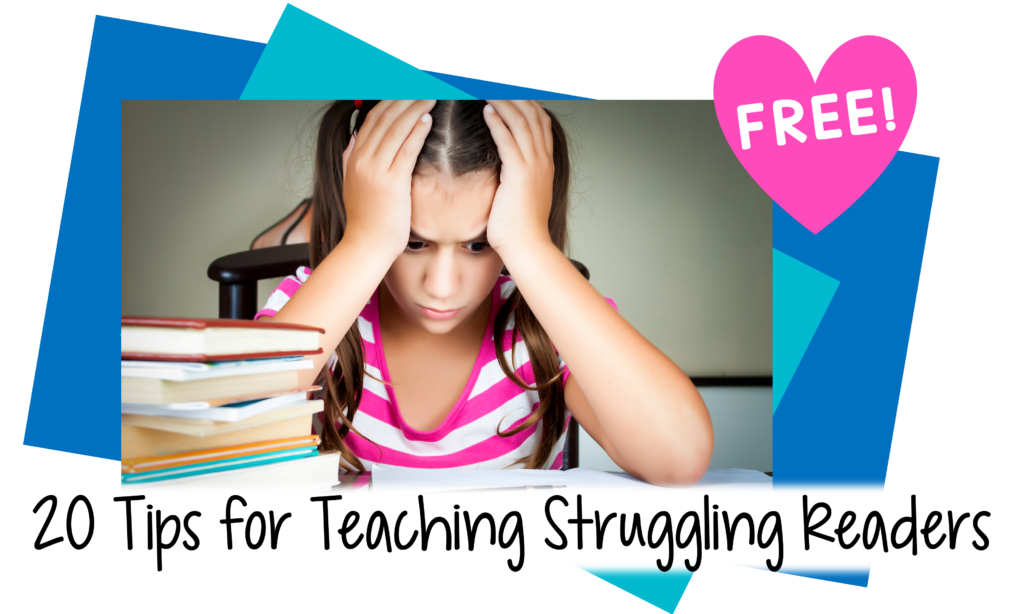
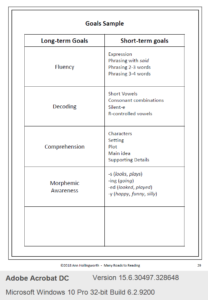

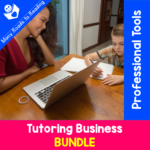
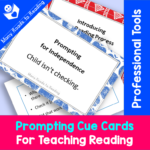
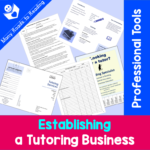
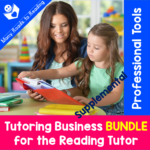
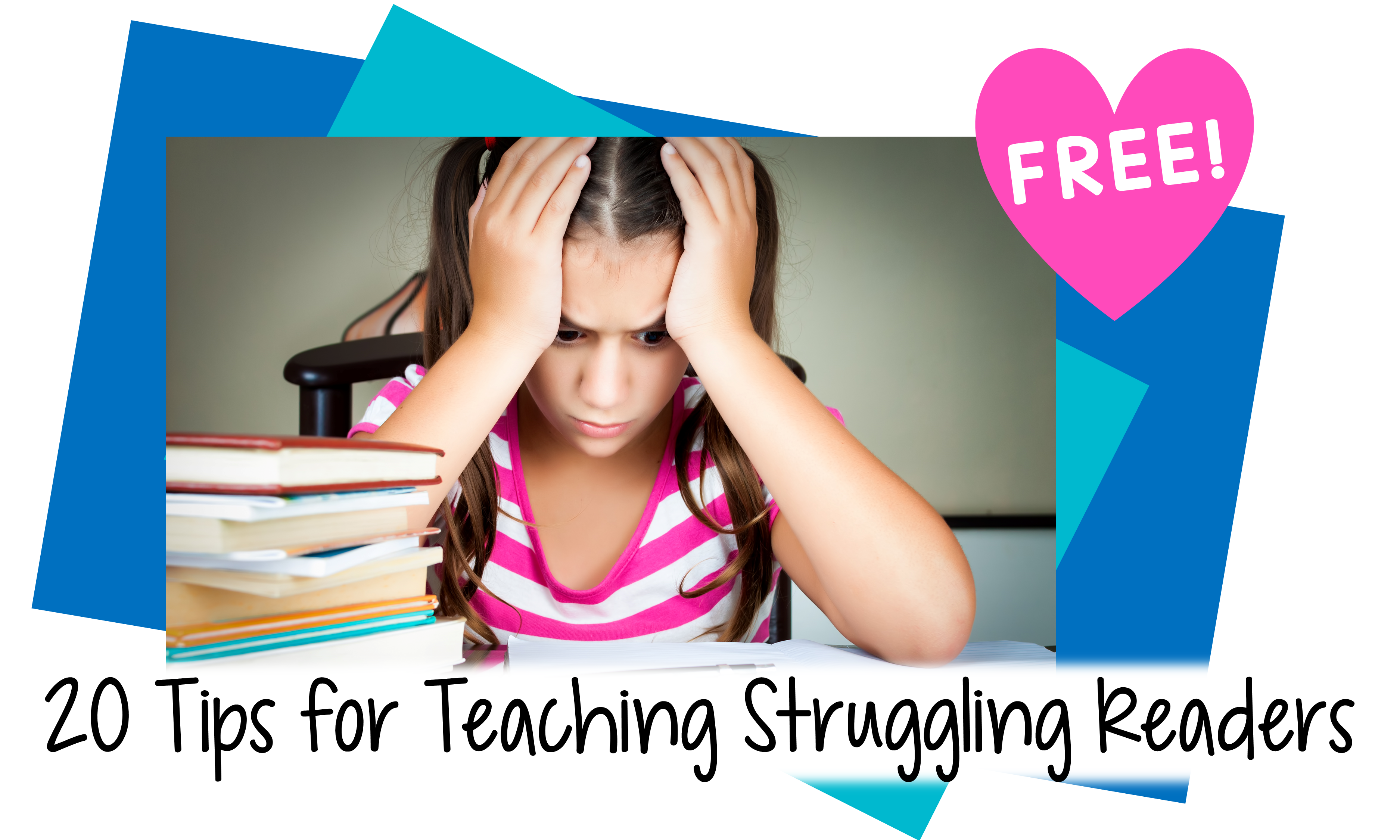
Leave a Reply